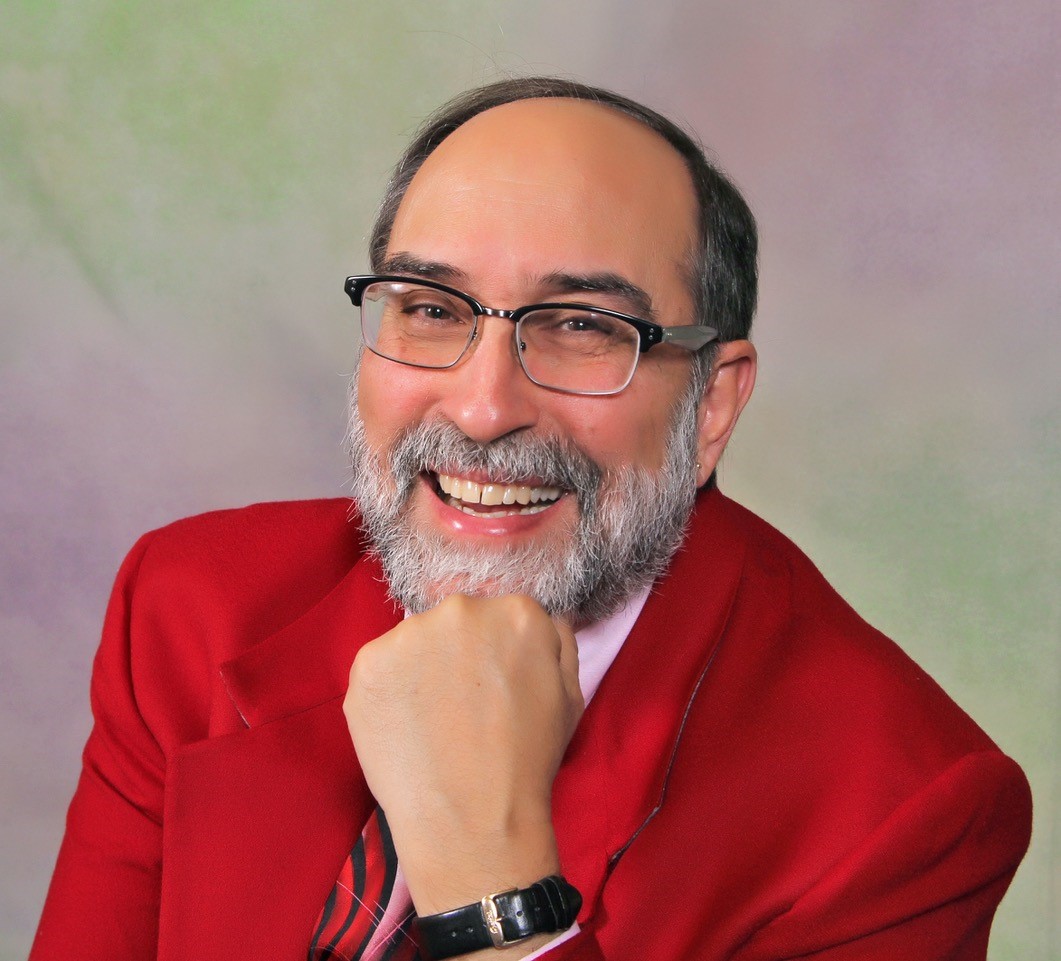For the past year, the two of us have been studying a unique text called לעילוי נשמה/L’illui Neshamha: For the Elevation of the Soul, authored, with textual compilations, by Tzvi Yivrov, a little known Israeli scholar, and published in B’nai Brak in 2008.
This book is about the efficacy and impact of postmortem prayers on behalf of the soul of the deceased, based upon the Talmudic principle of ברא מזכה אבא/ Bara Mezakeh Abba (BT Sanhedrin 104a) — “the progeny brings merit to the father.” It is a fascinating exploration of the continuity of consciousness and spiritual evolution of the soul after death, and connections between the world of the living and those in the world beyond.
In preparation for the Yamim Nora’im and the season of Yizkor, we offer a creative translation of two selections from this book and reflections on how these texts invite us to hold our hearts and minds in new ways for Yizkor this year.
At the beginning of the book the author writes (in the name of a Rabbi Yonah, z”l):
A woman must take care to pray evening, morning and afternoon, ending her prayer with supplications for her sons and daughters to be god-fearing; and that her sons will succeed in their study of Torah. [This is] because the essence of a woman’s merit in the world to come [is based upon] her sons serving God, doing God’s will and being God-fearing. If her sons are God-fearing in their hearts, and engage in Torah and mitzvot, after she is in her eternal resting-place [beit olamah] these deeds are all attributed to her as if she is alive and doing all the mitzvot herself, even as she is in the higher realms of the World to Come [World of Souls/Olam HaNeshamot]. (Chapter 1, p. 15)
Evidenced in this paragraph is a sense of connection between the deeds of living children and the postmortem fate of deceased parents. That is, the deeds we do to make the world a better place have spiritual efficacy to affect the state of our parents’ souls in the afterlife. This notion that we are spiritually interconnected with deceased loved ones is a profound shift from the Western cultural view that says “dead is dead,” and there is no consciousness after life has ended. But this traditional Jewish view suggests otherwise — that consciousness survives bodily death, and living children and the souls of deceased parents are in ongoing relational interplay long after the body has died. This view, consonant with pre-modern Jewish philosophy and eschatology, is truly a profoundly different way of thinking of death and afterlife than scientific materialism would have it.
Through our deeds, our benevolent mitzvot and acts of lovingkindness, we bring our parents alive to us, in our hearts, minds and souls.
Reflecting further on the paragraph quoted above, from a contemporary point of view: first, we have aspired to remove the gender bias. This teaching here is to be regarded as instruction for all children, asserting that their deeds directly impact the soul of deceased parents in the world beyond. Secondly, we view the ideas expressed in the quote above as moving beyond the specificity of “Torah and mitzvot” in the classical sense, referring more broadly to the spiritual impact of any actions intended to make the world a better place.
Even more than influencing the postmortem soul of the parent, what is suggested by these ideas is that through our deeds, our benevolent mitzvot and acts of gemilut hasadim, lovingkindness, we bring our parents alive to us, in our hearts, minds, and souls. Many [adult] children, bereft upon the death of a parent, yearn for a continued connection and frequently have difficulty accepting that their father or mother is no longer alive and hence unable to offer us counsel and consolation. This is particularly the case in the early months and even years after a death, especially if it was sudden or tragic. This teaching highlights the notion that by engaging in kind and loving acts, deeds that aspire to make the world better, a bereaved child can experience a sense of bringing their parent(s) to life. In expressing compassionate and caring behavior they might have learned from their parents, they can know, internally, experientially, that in those moments, their parent is fully present with them. This is a unique and profound notion that can serve as an inspiration and consolation to the bereaved, to all children of deceased parents. In other words, know that in our times of grief and loss, through acts of lovingkindness, and in moments of success in life, we are literally accompanied by our parents in this human realm. This is not only metaphoric or symbolic but an actual interwoven relatedness with loved ones in the world beyond.
Bringing this awareness to our Yizkor prayers, transforms this age-old bereavement ritual to a deeply efficacious spiritual practice connecting us directly with souls of loved ones in the world beyond. Thus, we do not only fulfill the traditional obligation of Yizkor and Kaddish, but even more, our prayers generate a richly intertwined spiritual relationship with deceased parents and other family members.
Elsewhere in L’illui Neshama we read:
Sefer Hasidim clarifies this exalted idea that the progeny [i.e., the child] brings merit to the father “[bara mezakeh abba]” as follows: “ … if the father is a sinner, and yet encourages his son to study Torah and engage in good deeds, and the son benefited from the father [who motivated the son’s study of Torah and practice of good deeds], therefore the son gives merit to the father.
And further: If the father instructed his son to do certain things [mitzvot] after his death, thus when the son does such deeds, it is as if the father himself had done so.” In other words, because the father is the direct cause guiding his son’s education to Torah and good deeds, this makes it such that the son gives merit to his father, because the father himself has been the source of this motivation. And it is also written [Hidushei Aggadot, on Sanhedrin 104a by Maharsha, Shmuel Eidels], because the path of those who are slightly wicked and do not want their sons to be like them, but rather to be righteous Zaddikim, [then] the wicked father guided his child on a good path, as a result, the child brings merit to the father [bara mezakeh abba].” (Chapter 1, p. 16)
There can be a tikkun, a psychological healing, between the living and the soul of the deceased.
The first teaching begins with the notion that the mother prays for a child’s success, and sets a positive example by living a God-fearing life herself, which brings merit to her in the afterlife. This second quote speaks to the situation in which the parent was not a good person, yet nonetheless desired for their child to be a better person than they have been — “Do as I say, not as I do.” In this instance, the parent’s soul can receive the merit from the goodness of the living child. Once again, this highlights the Talmudic principle of bara mezakeh abba-the child brings merit to the father.
This teaching offers a path to healing our relationships with difficult and problematic family members. It suggests that there can be a tikkun, a psychological healing, between the living child and the soul of the deceased — be it a parent or others. Right action and ethical living on our part, behavior that is diametrically opposed to how our parents may have conducted themselves in their life, can heal our own wounds as it heals the flaws in the soul of those who have passed on the world beyond.
Think about that as you recite Yizkor prayers this year: We don’t only say Yizkor to remember the deceased. But as this text we have presented teaches us, Yizkor can be a way of both remaining spiritually interwoven with loved (or unloved) ones in the world beyond, and healing our relationships with, and memories of, deceased relatives — not only parents, but siblings and spouses as well. Yizkor is not only a sad memorial service and a communal grief ritual; it is far more than that. For those reciting such prayers, this time-honored service provides an opportunity for healing; a chance for cultivating an appreciation of the legacy of those who have died; as well as a time of bittersweet reflection, remembering the love and simultaneously honoring the loss. And finally, at a spiritual level, Yizkor is a time for a deep soul connection with those who have made the transition from life to death. Holding this awareness this year can be transformative, bringing peacefulness and completion to our relationships with deceased parents and other relations as well.
May our Yizkor prayers bring healing and comfort this year.








